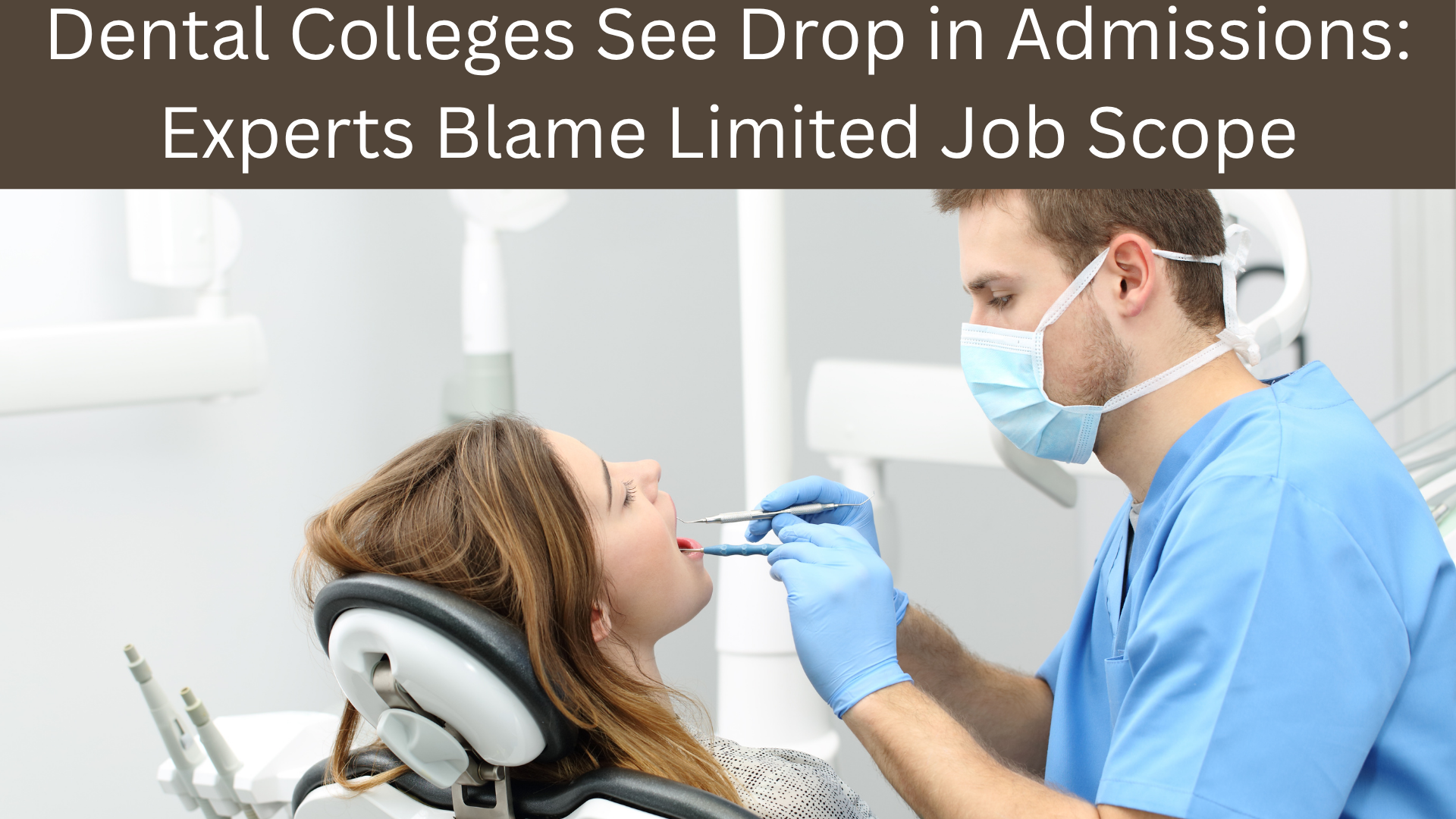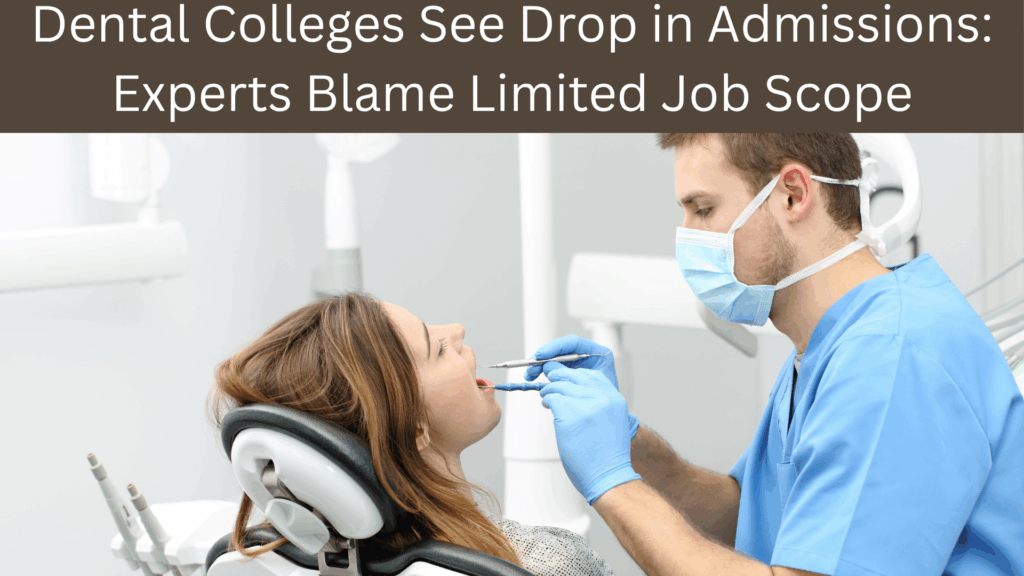Dental Colleges See Drop in Admissions this academic year, prompting concerns among educators who attribute the trend to limited job opportunities in the dental sector.
Dental Colleges See Drop in Admissions: Experts Blame Limited Job Scope
In recent years, a concerning trend has emerged across India—a significant drop in admissions to Bachelor of Dental Surgery (BDS) programs. According to data from several state counselling bodies and the Dental Council of India (DCI), even reputed government and private dental colleges are struggling to fill their seats. While NEET-UG aspirants still appear in large numbers, most prioritize MBBS or allied health sciences over dentistry.
Experts attribute this drop primarily to the limited career scope and saturation in the dental job market. With more BDS graduates entering the workforce annually and fewer job openings, students are reconsidering dentistry as a viable long-term profession.
Why Dental Admissions Are Declining
Several factors contribute to the fall in popularity of dental education:
- Job Market Saturation: Thousands of dental graduates pass out every year, but there are limited positions in hospitals and clinics.
- Lack of Government Jobs: Unlike MBBS graduates, BDS holders have fewer opportunities in public healthcare systems.

- High Cost vs. Low ROI: Many private colleges charge hefty fees, but the returns after graduation—especially without specialization—are relatively modest.
- Limited Awareness: Students and parents often do not fully understand the dental profession’s potential beyond clinical practice.
The combination of these issues has led to nearly 30% of dental seats remaining vacant in some private colleges even after multiple counseling rounds.
Expert Perspectives on the Career Scope Challenge
Dental educators and health economists argue that the problem lies not with the degree itself but with how the dental profession is structured and perceived. According to Dr. S. Krishnan, a senior dentist and academician:
“BDS is a solid foundation, but without MDS or added certifications, most students are unable to find financially sustainable jobs. The sector needs urgent restructuring.”
They recommend the following solutions:
- Stronger placement ecosystems within colleges.
- Expanded government hiring for dental officers at the PHC and CHC levels.
- Incentives for rural practice, similar to MBBS graduates.
- Interdisciplinary roles in public health, research, and health tech companies.
Urban Saturation vs. Rural Demand
Ironically, while urban areas are saturated with dental clinics, rural India faces a significant shortage of dental professionals. According to the DCI, the dentist-to-population ratio in urban regions is approximately 1:9,000, while in rural areas it’s closer to 1:50,000.
This urban-rural imbalance presents both a challenge and an opportunity. Experts suggest encouraging dental graduates to serve in rural and semi-urban communities, offering incentives like student loan waivers, additional ranking points in PG admissions, or housing support.
Students’ Perspective: What They Think
Students today are more career-conscious and aware of the return on investment. A final-year BDS student from a reputed college shared:
“I chose dentistry because I didn’t get an MBBS seat. But now I see that even with good grades, the competition in MDS and limited job options make the future uncertain.”
To attract quality students, dental colleges must offer better internships, early exposure to real-world challenges, and industry collaborations to bridge the academic-industry gap.
Conclusion
The drop in dental college admissions is a wake-up call for policymakers, educators, and industry stakeholders. Reviving interest in dentistry requires systemic changes—better job opportunities, clearer career pathways, and a stronger focus on rural oral healthcare. Until these reforms are in place, many students will continue to see BDS as a backup rather than a first-choice profession.
We appreciate your time in reading this article with us.





